St. Michael’s Hospital Workshop Series & Research Study, Spring 2018
The program focused on three stages or circumstances where money is particularly important in people’s lives:
Young people entering the workforce
People in precarious work situations
Older adults considering retirement but unsure whether they have enough savings.
Many Canadians find it difficult to make ends meet. About half of us live from pay cheque to pay cheque, and many are unsure about how to manage the limited money that we have. Although financial planning experts abound, services are often unavailable to those with low incomes. Overall, there are extremely limited resources for average Canadians to learn how to advocate for themselves or to navigate their way through complex financial systems.
Since income and financial resiliency are critical determinants of health, financial precariousness and income insecurity have serious implications for both individual and population health.
To respond to these challenges, The Upstream Lab, at St. Michael’s Hospital’s Centre for Urban Health Solutions collaborated with Strive, to develop a pilot program to help Canadians build the skills they need to succeed in today’s financial world.
10-week program uses peer-sharing to promote financial empowerment
In April 2018, study participants began attending a free 10 week pilot workshop series on topics related to financial literacy (e.g. how to understand a credit report or build personal savings), capacity building (e.g. setting and meeting goals) and financial advocacy (e.g. how to access government benefits and avoid predatory lending).
The goal of the program was to build personal financial empowerment using a peer-to-peer engagement model in which participants share their own stories including both successes and challenges. Ultimately, each person mapped out their own strategy for money management and financial advocacy.
From an impact perspective, both Strive and the Upstream Lab teams recognize that this project alone cannot solve the issue of income inequality, but are interested to see the impact of this pilot intervention. By measuring the effect of financial empowerment through rigorous evaluation, we hope to support the development of further work in this area for patients and clients in health care and beyond. In particular, Strive hopes to engage hospitals, universities and other organizations to offer this service for their patients, students and employees.
Pilot Results
We were very pleased with the results of the program and they have been published in the Journal of Family Practice. An author’s original version of the paper can be found here.
Strive saw meaningful increases
in the number of participants who :
Felt more optimistic about their financial situation;
74% improved compared to baseline post intervention and 54% improved compared to baseline after 3 monthsFelt more in control of their finances;
78% improved compared to baseline post intervention and 55% improved compared to baseline after 3 monthsHad less stress about their finances;
63% improved compared to baseline post intervention and 50% improved compared to baseline after 3 months
Why is St. Michael's Hospital interested in financial resiliency?
St. Michael's is interested in improving health outcomes, and economic well-being contributes to better personal health for people and their families. The hospital and it's Center for Urban Health Solutions, are committed to developing and evaluating solutions that support patients' progress towards economic resiliency and address health inequities. St. Michael's family health team has has two full time staff helping patients access critical financial benefits and services that may improve patients' economic well-being and health outcomes. This program and research initiative will provide insight into the effectiveness of facilitated peer to peer engagement as a tool for building financial resiliency.



“Just hearing stories… like, everyone’s experience, felt like, this building block to more self-esteem.
Because you look back and do a self-check.
Well no, I’m not useless. I’ve done this. I’ve done this. I’ve done this. And I’ve done this.
And you go. Oh wow. That’s alot.“